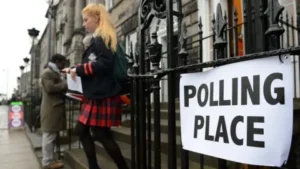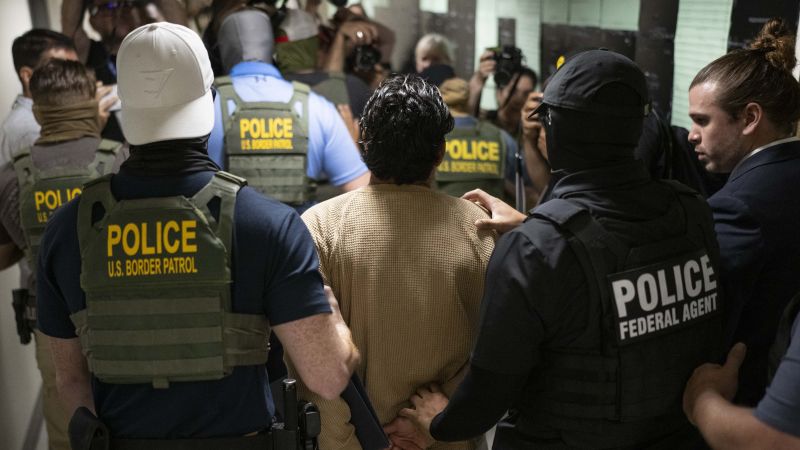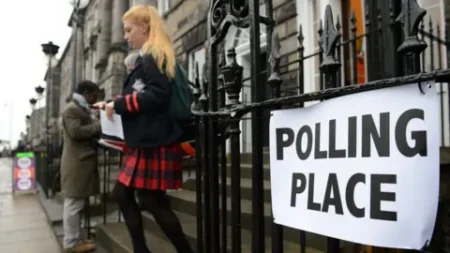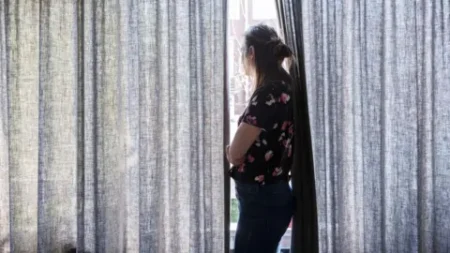On Wednesday, civil rights organizations initiated legal action against the Trump administration in an effort to challenge the government’s newly implemented policy that permits Immigration and Customs Enforcement (ICE) officers to arrest undocumented immigrants when they appear for immigration hearings in courthouses. This class-action lawsuit, presented in a federal court located in Washington, D.C., seeks to represent the interests of around a dozen immigrants alongside several civil rights groups, marking a significant escalation in a broader legal strategy aimed at countering the administration’s contentious measures designed to increase deportations across the United States.
Historically, the Department of Homeland Security (DHS) operated under policies that restricted immigration enforcement within courthouse locations. However, following the rescinding of those guidelines shortly into President Trump’s second term, ICE officers began appearing in courthouses nationwide, leading to the apprehension of migrants simply attending their scheduled immigration court appearances. This shift has raised considerable concern among advocates who perceive it as an attempt to undermine the legal process and instill fear in immigrants navigating the judicial proceedings necessary for their residency applications.
The specifics of the lawsuit delineate how the administration has adopted a new modus operandi: attorneys for the government request an immigration judge to dismiss respective civil proceedings against specific immigrants, ostensibly due to “changed circumstances.” Post dismissal, ICE agents—who are frequently present within or in the vicinity of the courtroom—are poised to arrest the individuals immediately. Such actions initiate expedited removal procedures, severely limiting the legal avenues available to those detained and often requiring their immediate confinement. Immigration attorneys have noted that many detainees are taken to facilities located far from where their initial hearings took place, further complicating their ability to seek legal assistance.
The attorneys representing the plaintiffs assert that the ramifications of these actions are dire. They argue that noncitizens, who predominantly comprise the plaintiffs in this case, are forcibly separated from their familial structures, careers, and communities merely for adhering to court protocols regarding their immigration applications. In their court filings, they contend that this practice violates fundamental rights enshrined in the U.S. Constitution and federal law, prompting requests for a federal judge to halt these recent policy alterations.
Plaintiffs include individuals who have unlawfully entered the U.S. in recent years and were apprehended subsequent to court proceedings dismissal, including several who had pending asylum claims. A notable case highlighted in the lawsuit involves a Cuban individual, referred to as P.D., who attended a immigration hearing for an asylum application. According to the lawsuit, without prior notice or adequate explanation, DHS initiated a motion to dismiss his case, despite objections raised by his attorney. Following the judge’s approval of the government’s motion, P.D. was apprehended immediately upon exiting the courtroom.
Advocates for immigrant rights argue that such courthouse arrests signify an alarming trend; enforcement practices have extended operations beyond traditional border areas or workplace sites, intruding into judicial settings that previously remained sacrosanct from such actions. The withdrawal of previous DHS policies has come under scrutiny as ICE faced increasing internal pressure from the Trump administration to augment its figures in terms of deportations and detentions—an objective articulated emphatically by Stephen Miller, a key figure behind the administration’s stringent immigration policies.
Legal experts, civil rights activists, and legal representatives have expressed their dismay over the targeting of individuals attending legal proceedings, emphasizing that such tactics are likely to discourage immigrants from actively engaging with the legal system. This sentiment was echoed by Skye Perryman, President and CEO of Democracy Forward, who lamented that the tactics being employed not only breach due process standards but also jeopardize the foundational principles of fairness integral to the justice system.
Moreover, this situation has yielded high-profile cases illustrating the administration’s aggressive stance. In one instance, a Wisconsin state judge, Hannah Dugan, was charged after allegedly aiding an undocumented immigrant evade imminent arrest during a court appearance. Her case has become emblematic of the tensions between state judiciary operations and federal immigration enforcement, highlighting the lengths to which the administration has gone to enforce its controversial policies in an official judicial context. Dugan has pleaded not guilty to the allegations against her.
Overall, the lawsuit encapsulates an escalating conflict surrounding immigration enforcement practices within the U.S. and underscores the profound impact of these measures on the lives of individuals navigating a complex legal landscape fraught with uncertainty and fear.











